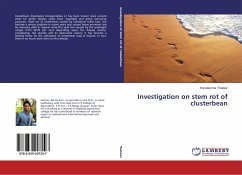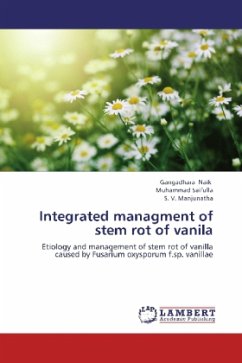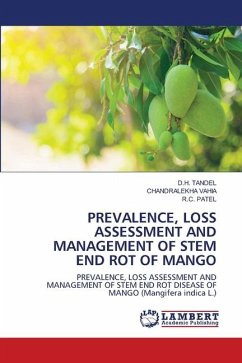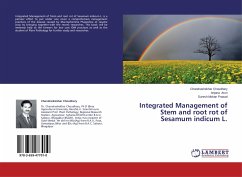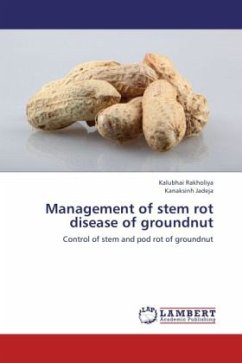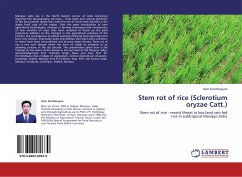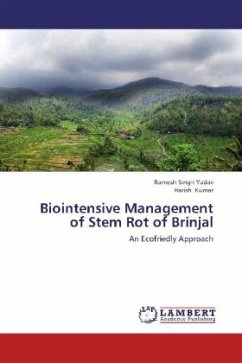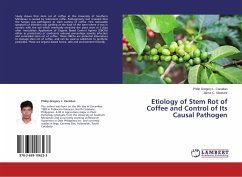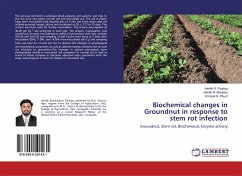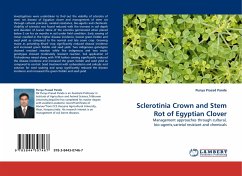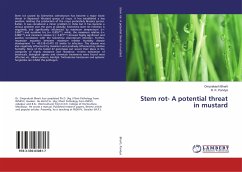
Stem rot- A potential threat in mustard
Versandkostenfrei!
Versandfertig in 6-10 Tagen
45,99 €
inkl. MwSt.

PAYBACK Punkte
23 °P sammeln!
Stem rot caused by Sclerotinia sclerotiorum has become a major biotic threat in Rapeseed- Mustard group of crops. It has established a key position, limiting the production of the crops particularly Brassica juncea. Earlier, it was considered a minor problem in India but it has become a serious problem over the years at globally. Sclerotinia stem rot infection is negatively and significantly influenced by maximum temperature (r= 0.697 ) and sunshine hrs (r= 0.855 ), while, the maximum relative (r= 0.883 ) and minimum relative (r= 0.871 ) showed highly significant and positive correlation with ...
Stem rot caused by Sclerotinia sclerotiorum has become a major biotic threat in Rapeseed- Mustard group of crops. It has established a key position, limiting the production of the crops particularly Brassica juncea. Earlier, it was considered a minor problem in India but it has become a serious problem over the years at globally. Sclerotinia stem rot infection is negatively and significantly influenced by maximum temperature (r= 0.697 ) and sunshine hrs (r= 0.855 ), while, the maximum relative (r= 0.883 ) and minimum relative (r= 0.871 ) showed highly significant and positive correlation with the Sclerotinia sclerotiorum infection. Further, regression equation between maximum relative humidity disease development Y= -40.518+0.475 X3 similar to infection. The disease was also negatively influenced by maximum and positively influenced by relative humidity. None of the tested 47 genotypes put secure their place in the categories of highly resistance and resistance. In-vitro evaluation of botanicals, biological agents and chemicals treatments were found most effective viz., Allium sativum, Amritjal, Trichoderma harzianum and systemic fungicides can inhibit the pathogen.



